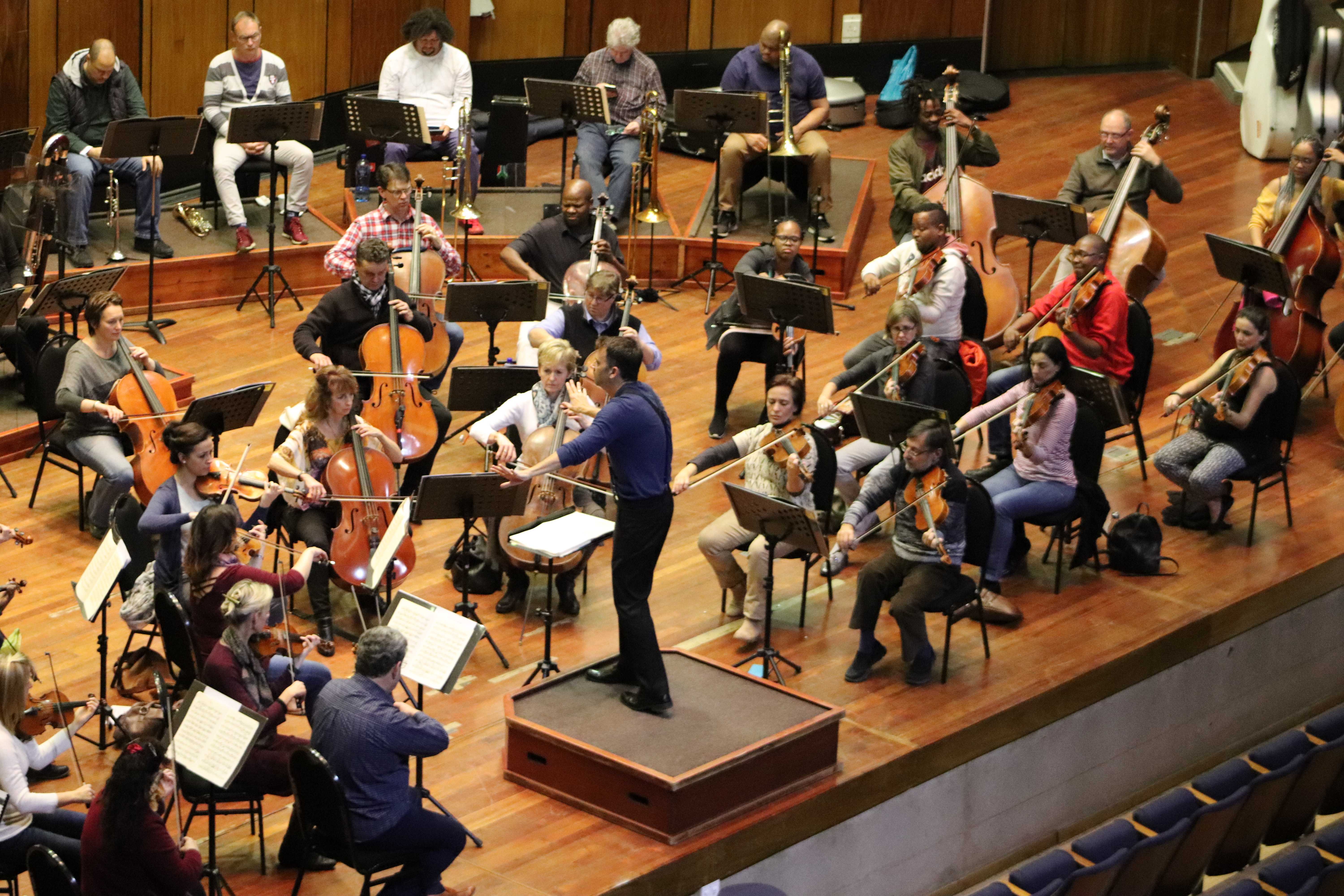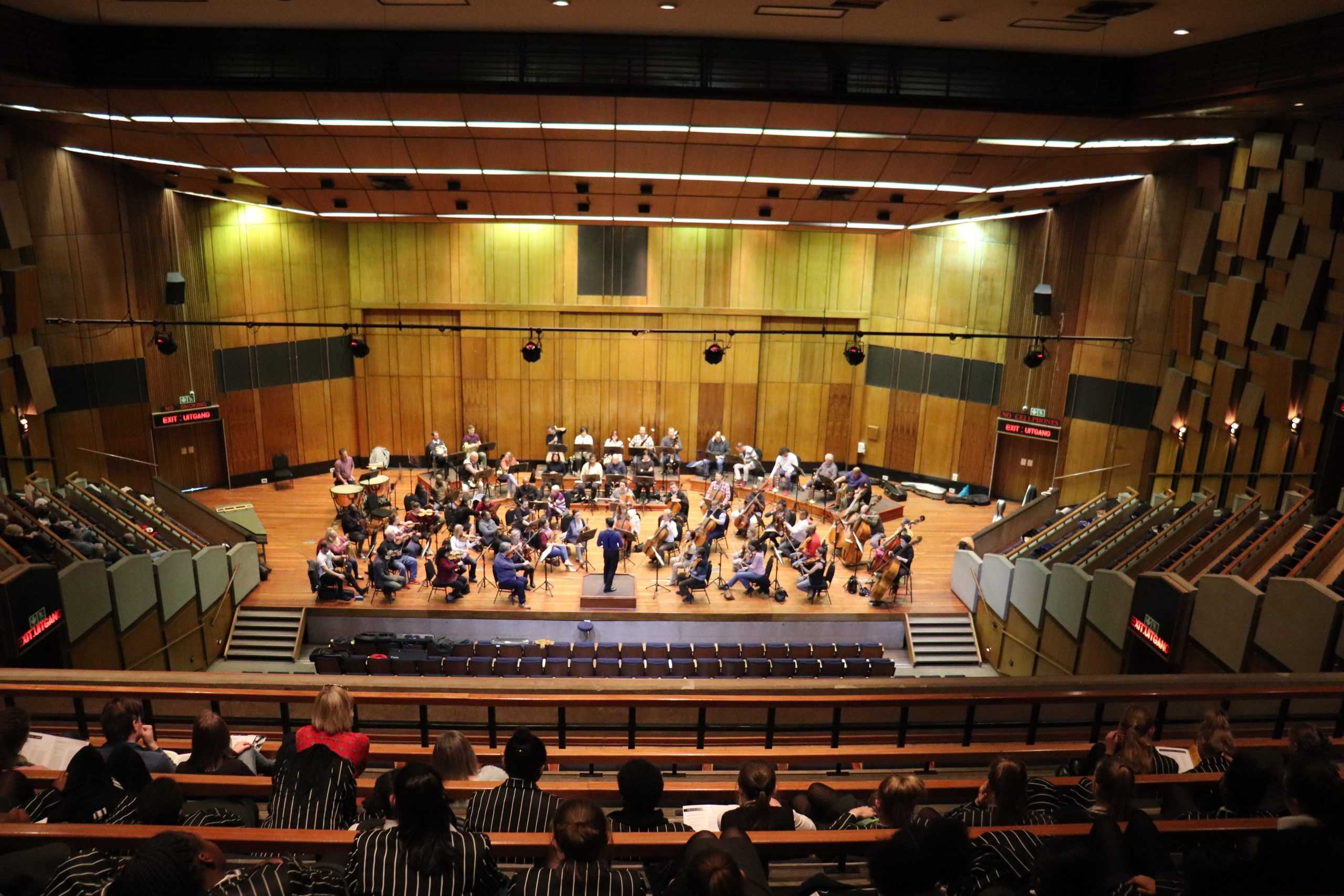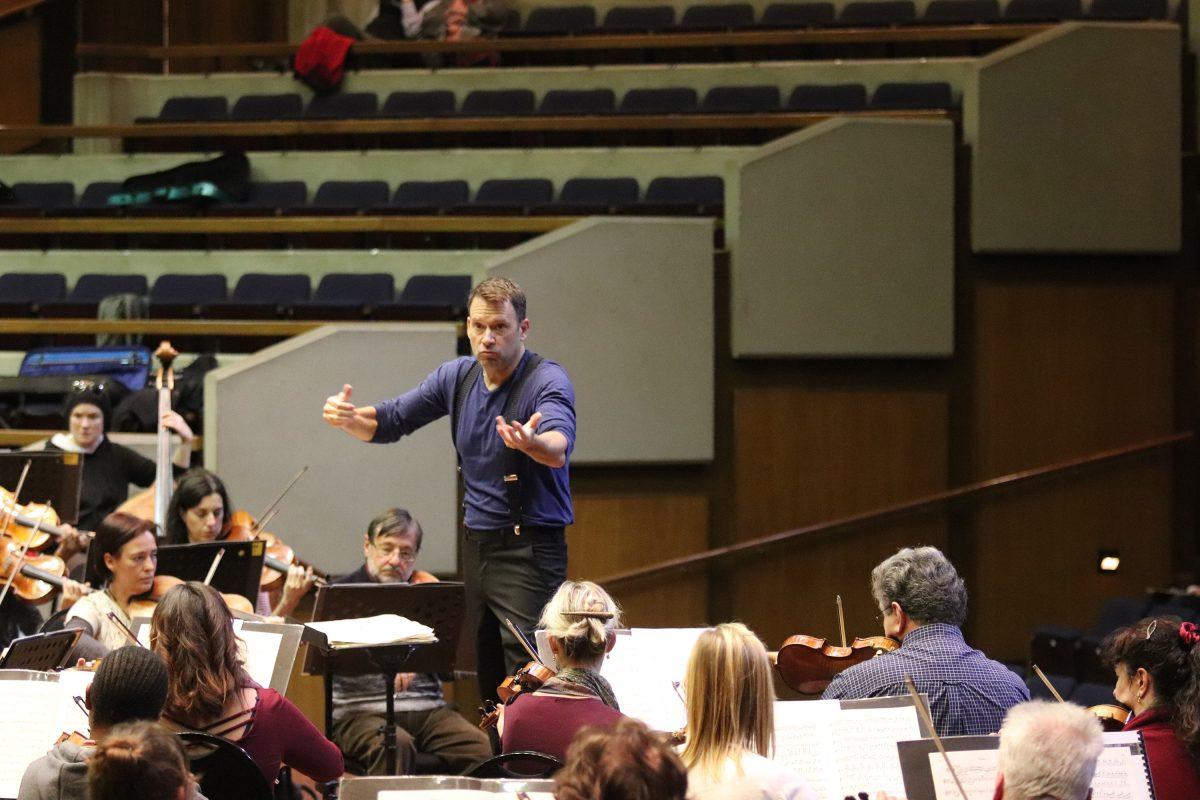Johannesburg, South Africa — American Robert Moody closed out the Johannesburg Philharmonic Orchestra’s popular World Symphony winter concert series this week as a guest conductor.
Moody appeared on stage June 13 at The Linder Auditorium on the Wits University campus in Johannesburg, alongside solo violinist Ye-Eun Choi. He conducted two symphonies, including Vivaldi’s “Four Seasons,” and one encore for a captivated audience of over 900 people in the packed auditorium.
Moody, who is originally from South Carolina, said he fell into conducting, and music for that matter, by chance.

“I don’t come from a classical music family at all,” Moody said. “In the fourth grade, there was a strings teacher who came and did one of those strings sign-up things. I didn’t sign up. A girl in my class wrote my name on the sign-up sheet as a joke, and here I am.”
The 51-year-old conductor learned to play the cello, took up singing, and eventually dabbled in trombone and piano. By the time he was 15, he wanted to become a professional singer and cellist.
“I went to a summer music camp, and they had a conducting class there,” Moody said. “Then there was a competition. I won the competition and really, I’ve never looked back.”
For 11 years, until 2018, Moody served as music director of the Portland (Maine) Symphony before becoming the music director of the Memphis Symphony Orchestra. He also served as music director of the Winston Salem Symphony for 10 years.
Moody has conducted orchestras across the world from China to Slovenia to Vienna to the United Kingdom. In November, he will guest conduct a concert series in Bogotá, Columbia. Moody’s tour in South Africa, which included guest conducting the Cape Town Philharmonic Orchestra earlier this month, was his first time working with South African orchestras.
“These guys? They’re great,” Moody said when asked what it was like to work with the Johannesburg orchestra. “Every single orchestra is unique. They have unique personalities. It might be that one section plays a little higher level than another section, but it’s more just how they get used to breathing together, phrasing together, and I’ve never noticed it being different if you were Slovenian, or Austrian, or American or South African.”
With four three-hour rehearsals before the June 12 and 13 concerts in Johannesburg, Moody said he had a chance to really get to know the 70 orchestra members. He also said that any differences among musicians are tied to their personalities, not their nationalities.
“Everyone will have a unique personality but it’s never because of nationality,” Moody said. “It’s just because those 70 people sitting on stage create their own group psychology that’s unique from any group of 70 people sitting on stage.”
Moody said conducting internationally has proven to him that music is a language understood and appreciated by everyone.
“Politics will never bring people together,” Moody said. “National leaders will never bring people together. Religion will never bring people together. I really do think music has the best shot of all.”

Polina Burdukova, artistic administrator and a cellist in the orchestra, is tasked with finding the soloists and conductors and negotiating their contracts. As a musician in the orchestra herself, Burdukova said that while she sees a difference in Moody’s conducting style, it is not due to his identity as American.
“The difference comes more from the age of the conductor, not the nationality,” Burdukova said. “The younger conductors tend to be a little bit more exuberant.”
Bongani Tembe, chief executive officer and artistic director for the orchestra, which is in its 19th year, said the annual world symphony concert series is a great way to feature top artists, soloists and conductors from across the world.
“[The concert series is] a wonderful platform for us to showcase excellence,” Tembe said. “Music unites us from all over the world. No matter our age or our race, we’re delighted that we’re able to do this and use music to bring people together.”

















































